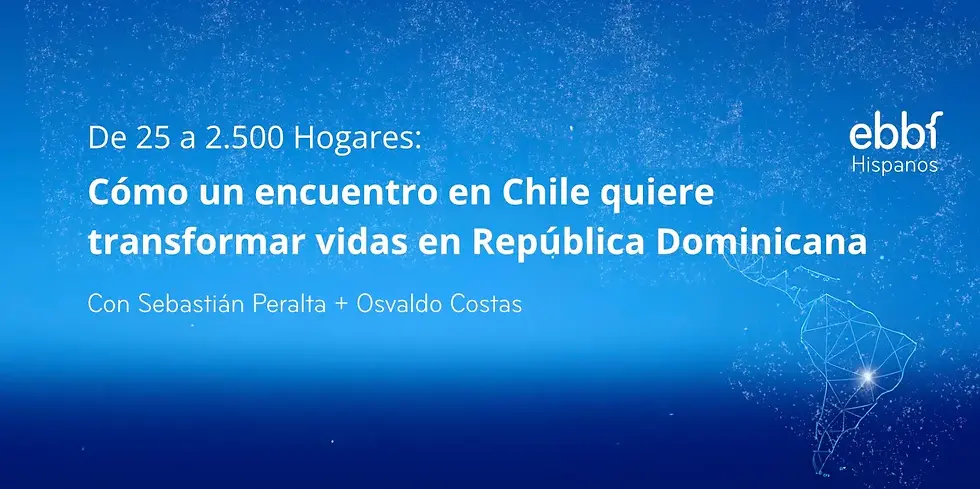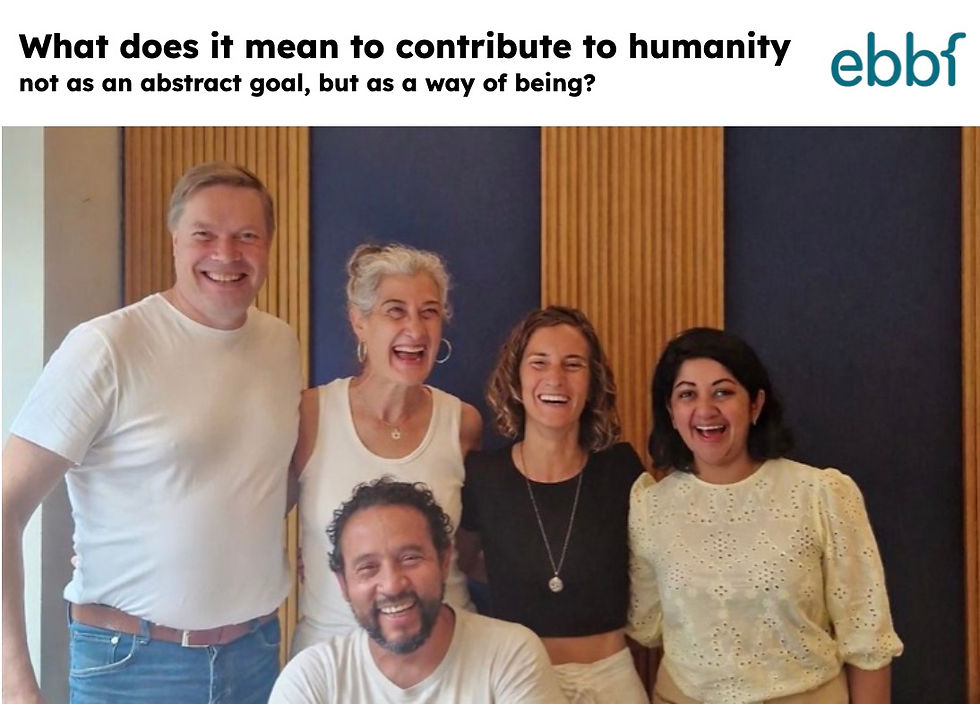Humanity is At Risk, but We Can Triumph! Meet the author ... Roy Steiner
- sjoerdluteyn
- Aug 7, 2024
- 2 min read
Why does Roy Steiner think that "the future is bright" and what can we learn about his approach to future visioning?
In case you missed it, here is Roy in his thought-provoking dialogue, VIEW HERE: https://lnkd.in/gfRAmAhk
In a thought-provoking discussion, Roy Steiner, a Vice President at the Rockefeller Foundation, shares his insights on humanity's potential for positive transformation amidst contemporary challenges. He reflects on our cultural narratives, the predominance of dystopian visions for the future, and the importance of collective imagination in shaping a more hopeful world. Steiner emphasizes the significance of community engagement and shared principles in fostering a vision for a sustainable future.
SHORT-TERM PESSIMISM, LONG-TERM OPTIMISM:
Steiner identifies himself as a short-term pessimist but a long-term optimist, believing that despite current global challenges, a better future is inevitable. This perspective is inspired by the Baha'i teachings on world peace.
CULTURAL FOCUS ON DYSTOPIAN FUTURES:
"We are really bad at envisioning positive futures!". Analysis of numerous books and movies reveals a predominant focus on dystopian themes, highlighting humanity's difficulty in envisioning and articulating positive futures.
THE POWER OF VISION & COMMUNITY ENGAGEMENT:
Roy emphasizes the importance of having a clear, collective vision for the future. Without it, society risks stagnation. He references a quote from the Baha'i teachings, asserting that world peace is both possible and inevitable. He believes humanity faces a critical choice: achieving progress through cooperative effort or enduring significant suffering.
He advocates for initiatives like the Food System Vision Prize to inspire communities to visualize and work towards their desired futures.
COMMON THEMES IN FUTURE VISIONS:
Submissions to the Food System Vision Prize revealed common desires across cultures for nourishing food, community building, a non-extractive economy, and the use of food as medicine. These shared goals underscore a common humanity and potential points of unity.
IMPORTANCE OF CORE PRINCIPLES:
Successful groups identified key principles like equity, justice, and harmony with nature, which helped them resolve conflicts and stay focused on their visions. Establishing such principles is crucial for creating and sustaining a shared future vision.
In Conclusion:
Roy Steiner's insights highlight the critical need for collective vision and community action in addressing global challenges. By fostering a culture that embraces open dialogues, long-term optimism and shared principles, humanity can navigate short-term crises and build a future characterized by peace, justice, and abundance.








Comments